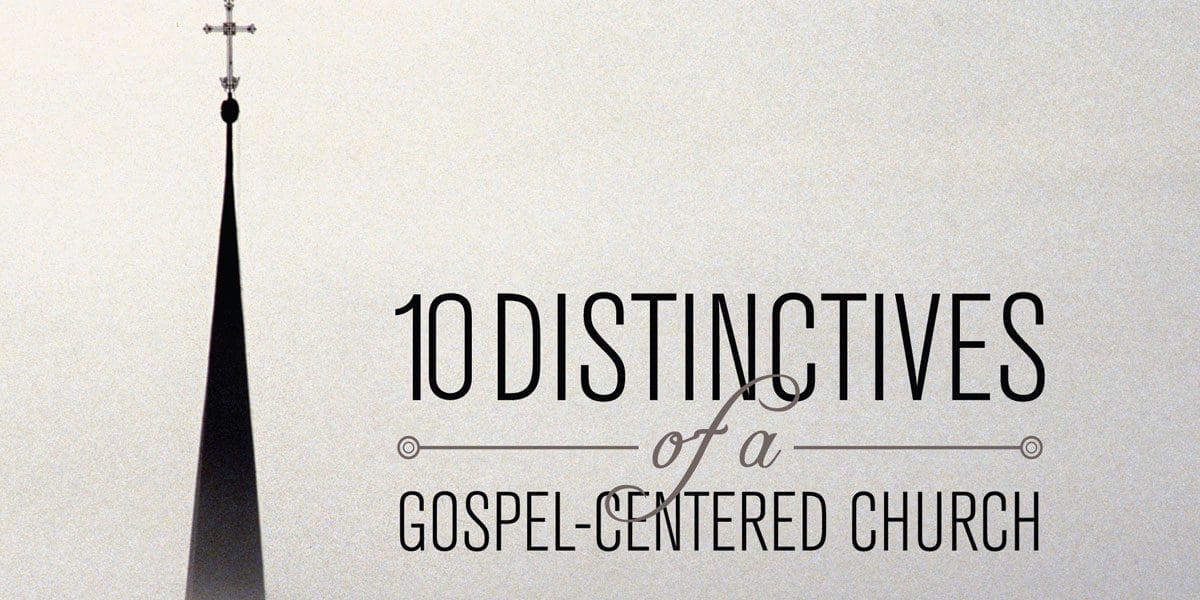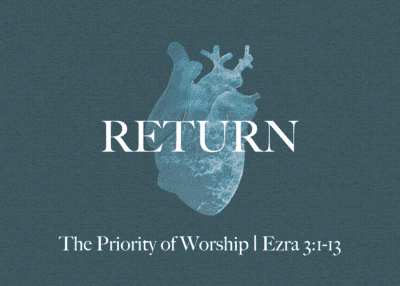Give proper recognition to those widows who are really in need. But if a widow has children or grandchildren, these should learn first of all to put their religion into practice by caring for their own family and so repaying their parents and grandparents, for this is pleasing to God.
1 Timothy 5:3-4 (NIV)
If you have gospel life, then what will flow from the life of Christ in you is the lifestyle of Christ, and He will be seen through you. The final two chapters of 1 Timothy spell out what this looks like.
Our focus today is on gospel compassion. Gospel compassion is the kind of care and compassion that a gospel-centered church will show toward those who are in need.
Where God’s compassion is seen
To know God is to know His compassion. Moses says “He defends the cause of the fatherless and the widow, and loves the alien, giving him food and clothing” (Deuteronomy 10:18). King David says “Sing to God, sing praise to his name… father to the fatherless, a defender of widows” (Psalm 68:5).
The Bible is full of God’s compassion for His children, especially those who do not have others in this world who care for them. An entire book of the Bible is given to the story of three widows: Ruth, Orpah and Naomi. It tells how God cared for them in their time of need by giving them a hope and a future.
We see God’s compassion most clearly in our Lord Jesus Christ. One day Jesus saw a widow at the funeral of her only son. Luke says “When the Lord saw her, He had compassion on her” (Luke 7:13). Literally, “He was moved to the core of his being.” By His divine power, he raised the boy to life and gave him back to his mother.
We read about a daily distribution of food to widows in the church in Acts 6, and here in 1 Timothy we have half a chapter devoted to this marvelous ministry. I did the math. About one-sixth of this entire letter is about ministry to widows. That shows the place widows have in the heart of God.
To all the widows in the church today, and to all the godly women who struggle with the unique pressures that come to a single mother: You have a special place in the heart of God.
Paul is urging the church to cultivate first, a culture of caring and then second, a culture of serving. You can’t be a caring church without also being a serving church. Why? What is caring, after all, but ministry through serving one another. We take this seriously at The Orchard because of our commitment to the Gospel.
Caring That Reflects and Brings Joy to the Heart of God
“Give proper recognition to… widows who are really in need.”
“The widow who is really in need and left all alone puts her hope in God…”
“…the church can help those widows who are really in need.”
1 Timothy 5:3,5,16 (NIV)
There will be genuine needs in the church. Paul emphasizes this three times. But we have to discern where there are genuine needs. It’s always right to ask: What provision has God already made? What is this person able to do for themselves? What means are already available?
There will always be genuine need in the church, and not just in difficult times. Paul says that the church must “give proper recognition to those widows who are really in need” (v3) and, he says, the church should help those widows (v16).
How do we know who to help and who to support? This is not a question just for pastors, but for some of us in our own families. When do you give help and when do you withhold help—especially when money is involved?
The Bible is a wonderfully practical book and right here, Paul shows us the path of wisdom through two principles:
God’s first provision is through the family
“If a widow has children or grandchildren, these should learn first of all to put their religion into practice by caring for their own family…”
“If any woman who is a believer has widows in her family, she should help them…”
“If anyone does not provide for his relatives, and especially for his immediate family, he has denied the faith and is worse than an unbeliever.” 1 Timothy 5:4,16,8 (NIV)
God sets the solitary in families, and where we have members of our own family who are in need, we are to consider how we might help them. This is the responsibility of relatives.
People who do not know Christ, often care well for their own relatives. How much more should we who know Christ care for our relatives?
In the early world, financial support for a woman and her children came from “the dowry.” This was the money that followed a woman into her marriage. The dowry was kept, and if a husband died, the dowry became a means of the widow’s support. But if the dowry had been spent or somehow lost, the woman could be in genuine need.
My wife did not have a dowry when we got married. It is my responsibility as a Christian husband to consider how my wife will be provided for, if God should call me home early in life. This was especially true during the years that our children were growing up.
I found a great way of doing this. It’s called a life insurance policy. I promise you, I am not receiving any commissions for saying this, but every family should have one.
John Stott says:
[This verse] tells us that it is a fundamental Christian duty to provide for our relatives. This is plain biblical warrant for a life insurance policy which is only a self-imposed savings plan for the benefit for our dependents. [1]
There will be some people who do not have this kind of provision. And if there is someone in need in your family circle, then together with other relatives, you will want to consider what you might be able to do to help.
Notice the motives for doing this: Paul says that when you care for other members of your own family, and especially for aging parents and grandparents, you are “repaying” the good that they have done to you (v4). If you say “They haven’t been so good to me,” I want you to notice a second motive: “This is pleasing to God” (v4).
One of the most beautiful moments in all the suffering and passion of Jesus is when He looked down from the cross at Mary, His mother, and John, His disciple, standing beside her:
“When Jesus saw his mother there, and the disciple whom he loved standing nearby, he said to his mother, ‘Dear woman, here is your son,’ and to the disciple, ‘Here is your mother.’ From that time on, this disciple took her into his home.” John 19:26-27 (NIV)
Even in His agony on the cross, our Lord was providing for His mother.
Caring for aging parents and grandparents isn’t easy, and I want to remind all of us who do this that what you do reflects the character of God and brings joy to the heart of God.
God’s first priority is a godly life
“The widow who is really in need and left all alone puts her hope in God and continues night and day to pray and to ask God for help. But the widow who lives for pleasure is dead even while she lives.” 1 Timothy 5:5-6 (NIV)
Paul describes two kinds of widows, one who puts her hope in God, and the other who lives for pleasure.
This introduces a second consideration in discerning how we should help a person in need: The church should not give in a way that supports or enables an ungodly lifestyle. That means its right for us to ask “Is this person committed to pursue a godly life?”
Here are two practical questions we should consider when we’re faced with making compassionate decisions: What provision has God made for this person? What commitment has this person made towards God? These two important questions come right out of 1 Timothy 5.
There will be times when God provides for people in need through the kindness of His own people. This kind of ministry happens regularly at The Orchard through your kindness. Every week as we leave from the communion service, we have the opportunity to give to the Benevolent Fund, which is used to help people in need.
Here are some letters to our pastors from folks in the congregation who were, “putting their hope in God, asking Him for help,” (v5) and found that God answered their prayers through your kindness. I want you to notice how these folks saw what they received from others in the body of Christ as a gift from the hand of God:
“Please accept my sincere… appreciation for your help with some of my medical bills. It was definitely a gift from God, but extended by the church and I appreciate all involved. God bless you all for your generosity. Thank you.”
“I want to thank you so much for your part in helping me to get a replacement car! I am so grateful to God, to the person who donated the car, to the church and to you.”
“As you know, my family and I have been through some very hard times these past few years. I truly never expected this church to receive my family and I as openly as it did, but that it would also help us without hesitation financially the way it did was something that left me speechless.
The Benevolent Fund aid that we received from The Orchard came at a time in my life that I sincerely could not see a way out. We were in an extremely desperate situation. That wonderful ministry was made available to us before anyone here even knew our names.
You and the church were the good Samaritan and I and my family were the victim on that side of the road where many had passed us by and looked the other way.
I thank God for never abandoning us even during our darkest hours; it is by His grace and never ending mercy that we have persevered. There is a heart filling gratitude that I feel toward this church and all those who give to the Benevolent Fund that I simply cannot put into words…”
This letter is addressed to the intercessory prayer team:
“I want to thank you for your prayers. I had lost my job and it took over a year to find another full-time position. I went through all my savings during that time and could only rely on God to help me through this very terrifying time.
I have a teenage daughter and it got very tough for us. The church was my safety net. I had gotten to a point that I had no money and no job. When I mean I had no money, I mean I had some change in my pocket, that was it. During this time God showed me who He was and I found fellowship in the church.
At first it was very hard to tell people about my situation. Money and no job has some shame to it, but God did not let me go. He provided church members who were generous (some anonymously) and the Benevolent Fund.
Many times after that when my gas tank was low and there was very little food, I would check my mail and there would be an envelope from someone (maybe a friend, but many times from someone that did not sign their name) with money. The card would just say “God loves you”. With tears, I would thank God.
My situation has changed. I have a full-time job with great benefits… I’m not out of the woods, financially as of yet, but there is a light at the end of the tunnel. It was because of people’s prayers, the Benevolent Fund and God’s mercy and grace that I’m where I’m at now. I now know that every breath I take and every step I make is because of our awesome God! I praise HIM!”
These are wonderful examples of the kind of ministry God calls us to pursue. Whose life will you touch today? Who will experience the blessing and the encouragement of God through your kindness this week? When you respond to the promptings of the Holy Spirit, so that a person in need experiences the help of God, that is a wonderful ministry that glorifies Him.
Serving That Never Gets Old
Care does not just happen. Caring and serving go together. A caring church is simply a community of people who serve one another.
Notice that the theme of serving is the focus here: Widows are to be recognized, honored and supported (v3). Widows are to be enrolled or registered on a list (v9). What is this list? Is this a list of widows who are receiving support? I don’t think so.
The qualifications for being on this list are different from the qualifications for receiving support earlier in the chapter:
Mature age: Widows on the list must be “over sixty” (v9)
Marital fidelity: “…has been faithful to her husband” (v9)
Ministry experience: “well known for her good deeds, such as bringing up children, showing hospitality, washing the feet of the saints, helping those in trouble and devoting herself to all kinds of good deeds” (v10)
It seems to me that the list is not a register of people receiving support. This is a list of people offering service. Here were a group of mature believers who offered dedicated service to the Lord, and in doing so they made the church a more caring place.
God has given a wealth of resources to the mature believers in this congregation: Those who’ve brought up children, opened your home, helped folks in trouble, and devoted yourselves to good deeds. Your experience is a gift you can give to others in ministry. All over our congregation, there are folks over the age of sixty who are doing this.
Last Wednesday we had five teams of our people, mostly retired, who served 22 guests who came in from the community to the church with various needs. Our people listened to them, prayed with them, and spent extended time with them. Then they helped them with clothing and gifts cards for food and gas.
I wish you could all see the team of men, mostly retired, who serve here every Thursday working on projects around the building. Their joy is infectious and their ministry is a gift from the Lord.
I was talking with one of our “over sixties,” and he said to me:
“I want to know who it was that defined the American dream! Who said that the dream is to make enough money so that you can go off somewhere with no responsibilities and with no other interest but yourself? That’s not my dream,” he said.
He got quite passionate about this! We desperately need to redefine retirement: To retire is to get a new set of tires to keep rolling in the service of Christ until you get home!
I want to encourage everyone over sixty today: Get a new vision of your golden years as the most useful years you can offer to Christ!
One Man’s Vision for Retirement
Alan Redpath is one of my heroes of the faith. He served as a pastor in London, then as the pastor of Moody Church here in Chicago for nine years. Then he returned to Scotland, where he became the pastor of Charlotte Chapel, my home church in Edinburgh. It was before my time. I was only a very small boy.
Redpath had been there for two years when at the age of 57 he suffered a near fatal stroke. After a prolonged illness, God met him there in a powerful way.
When I was 17, I went to a convention in a place called Filey. Thousands of Christian came, and there were speakers from all over the world. Every night, these men would speak in different venues. I went wherever Redpath was speaking. The power of his preaching still affects me today.
On the last night he was speaking about God’s total self-giving to us in Jesus Christ, and he said:
“I have asked God to give me ten more years to live for Him more fully than ever before.”
I checked his dates. Redpath would be been 68 then. I was seventeen. And I thought “That’s what I want for my life—to serve Christ, with all that I am and all that I have, and then to do that in eternity forever.”
The dream of what we pursue in retirement is rooted in what we embrace when we are young. What’s your dream? What are you living for? What are you working towards? What do you want to do with your last years before you see your Lord?
God gave Alan Redpath his request. He lived for another 14 years and then went to be with Christ in 1989. Ten more years to live more fully for Him than ever before! That’s the Gospel dream! Let’s live it together.
[1] John Stott, 1 Timothy and Titus, p. 131
[elementor-template id=”128476″]





